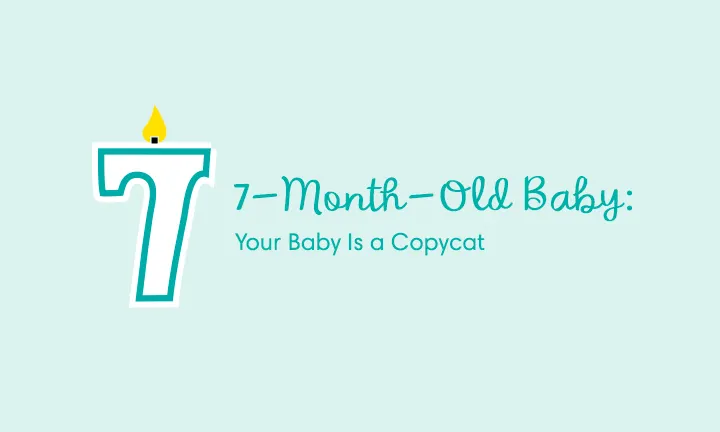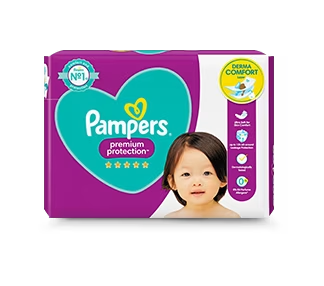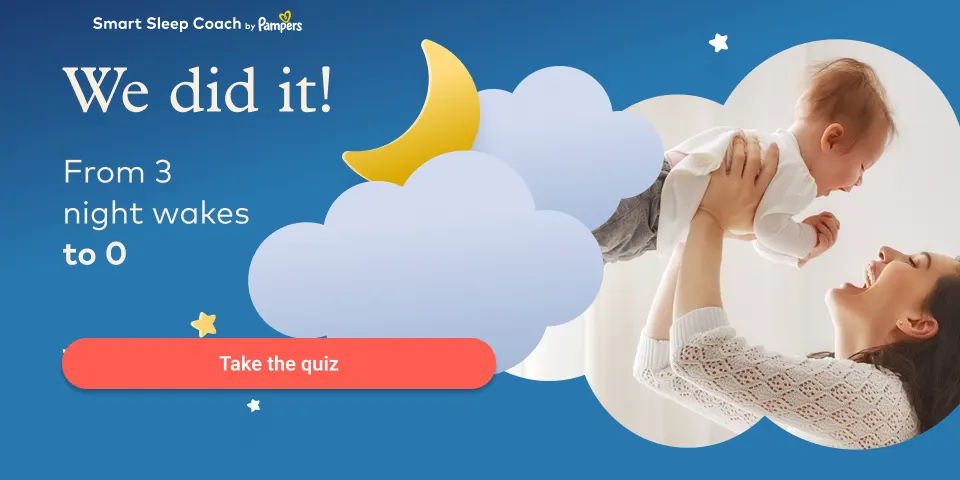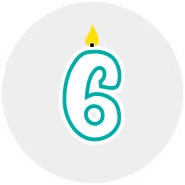Your 7-Month-Old Baby's Development and Milestones
By seven months, most babies are becoming more active, curious and sociable. At this stage, developmental milestones can vary, but there are common signs of growth across motor skills, communication and social interaction. Many seven-month-olds also begin to gain better head and trunk control, sit without support, and move their hands with growing coordination. Many seven-month-olds also begin to babble, respond to their name, and enjoy simple games such as peek-a-boo.
Here’s a quick overview of typical seven-month milestones:
Physical development. Sits up unaided, can roll in both directions, and may start to scoot or crawl.
Fine motor skills. Transfers objects between hands, and bangs toys together.
Thinking and learning. Investigates objects by touch and mouthing, and follows moving items with the eyes.
Language development. Babbles using consonant sounds and responds to voice and name.
Social and Emotional development. Recognises familiar faces and may show signs of stranger anxiety.
Every baby develops at its own pace, but watching for these signs can help you track progress and spot potential concerns early. Here's a closer look at the usual development milestones for a seven-month-old baby.
Baby Development Milestones
There are plenty of exciting milestones to look out for once your baby reaches seven months. Here are some of the highlights from this month:
Physical Development: Average Weight and Height of a 7-Month-Old
At seven months, your baby is still growing rapidly. Every baby is different, but during your baby’s check-ups, the GP or health visitor will measure your baby’s weight, length, and head circumference, then plot them on a baby growth chart. This helps ensure your child is growing steadily and staying within a healthy range for their age.
You might notice a seven-month growth spurt at this stage. These growth spurts can make your baby a little fussier, disrupt sleep briefly, and leave them hungrier as they grow quickly. They usually last a few days and are a normal part of development. Continue with regular feeds and plenty of rest to help your baby through these phases.
Movement: Coordination, Independence and Crawling at 7 Months
One of the most noticeable changes this month is your baby’s improved coordination:
Your baby may be able to transfer objects from one hand to the other. You might even see them turn objects side to side and upside down as they explore.
They may be starting to crawl around now, although timing varies, and some babies simply choose to bottom shuffle instead.
They may be rolling over both ways. Most children learn to roll from tummy to back first. With this development, you’ll need to be extra careful when they’re on a high surface, such as a changing table. Keep a hand on them at all times!
When lying on their back, they may reach for and grab their toes. They’re slowly discovering what their body parts can do and getting used to new sensations.
As your baby becomes more active, you’ll need a nappy that moves with them. Pampers Baby-Dry Pants are designed for active babies thanks to their 360 Stretchy fit, Stop & Protect system to prevent leaks, and wider leg cuffs.
Cognitive Development: 7-Month-Old Speech, Vision and Intellectual Milestones
By seven months, your baby is increasingly curious, engaged, and expressive. This is an exciting stage in your baby's early cognitive development, as they begin to display clear preferences, respond to familiar voices, and explore their surroundings with growing understanding.
Speech and communication. From around this month, you may have an extra special role to play in your baby’s language development as your little one slowly starts to imitate the sounds in your speech. Your baby might have even progressed to joining two sounds together. Encourage these efforts by talking to your little one often and by repeating easy words like ‘mama’, ‘dada’ and ‘dog’. You can also help by pointing at things that you can both see (like the family cat or a book). Instead of just babbling back at your little one, use real words to communicate with your baby.
Vision and sensory awareness. Your baby's vision is getting better all the time. By this stage, they can usually see from one end of a room to the other, recognising familiar faces and objects from afar. Depth perception and hand–eye coordination are improving, and they’re likely to reach for toys more accurately or track moving objects with their eyes. This improving vision supports object permanence (the realisation that things still exist even when they’re not in sight), a key cognitive milestone at this age.
Exploration and personality. Your baby is developing a strong sense of self and may become frustrated when they can’t reach a toy or express their needs. This is a normal part of cognitive development and the emergence of independence. You’ll also see more of their personality emerge; some babies are vocal and playful, while others are more reserved and observant. Every baby is unique, and preferences can shift from day to day. Some may need extra cuddles before bedtime, while others prefer a little time alone. Watch for your baby’s cues — they’re learning how to communicate.
Behavioural Changes at 7 Months Old
As your baby approaches seven months, you may notice notable changes in their behaviour. These shifts are a natural part of development, reflecting your little one’s growing awareness of the world and their desire to engage with it.
Imitating and responding. Your baby is probably starting to mimic facial expressions, gestures and vocal sounds. This mimicry is not only endearing, but it’s also a crucial milestone. Imitation helps babies learn to communicate, build social skills and understand relationships. At this stage, many babies are also beginning to explore cause and effect. For example, your seven-month-old might drop toys simply to see you pick them up. While it may seem repetitive, this behaviour is a sign of healthy curiosity and cognitive development.
Emotional reactions and fussiness. Many parents wonder why their seven-month-old is so fussy. Often the answer lies in your baby’s rapid development. At this stage, they may become more fussy for several overlapping reasons, including:
Separation anxiety (starting to prefer familiar caregivers)
Frustration from not being able to reach or do what they want
Teething pain
Changes in sleep patterns
Overstimulation from a more alert and active mind.
Fussiness at seven months is common and temporary, often reflecting your baby's evolving communication and emotional needs. Comfort your baby with soothing words, gentle routines and quiet time. Pay attention to triggers. Sometimes a simple change in activity or setting can help them settle down.
Your little one is learning how to express preferences, assert independence and navigate new experiences. With consistent support and reassurance, they’ll gradually learn to manage these big feelings.
From rolling over to taking first steps, watch your baby's progress unfold as they grow month by month.
Activities and Development Tips for Your 7-Month-Old Baby
Wondering what to do with a seven-month-old? By seven months, your baby is keen to explore, learn, and connect with the world around them. The most effective way to support their development is through play, language, and safe interactions.
Here are some simple, effective ways to encourage your baby’s growth and development:
Offer safe toys and household items. Babies benefit from toys that come in different shapes, colours, textures and sounds. You don't need to spend a fortune; many seven-month-olds are just as captivated by safe household items such as wooden spoons, pots and pans, or magazines with colourful pictures. Always supervise playtime to help keep your baby safe.
Get down on the floor and play. Curious about how to play with a seven-month-old? Just get down to their level -- it's that simple. Offer toys they can reach or grasp, and let them explore. This kind of play helps develop fine motor skills, coordination and trust.
Talk, read, and sing together. Make everyday moments count as mini language lessons: describe what you are doing during nappy changes, feeds, and strolls, or hum a quick tune. Repeating words and sounds helps your little one pick up language more quickly. Reading aloud from books with bold pictures or textured pages can also boost engagement. If you are bilingual, speak another language at home; babies naturally soak up languages from an early age.
Encourage social interaction. When your baby shows signs they’re ready, you can introduce them to other babies or to trusted adults, in a calm and familiar setting. Engaging with others supports their emotional development. If they’re shy or unsettled, don’t worry, this is perfectly normal at this age as they learn to navigate new situations.
Take your baby out and about. A stroll, a park visit or even a trip to the supermarket can delight your baby. These outings introduce your baby to new sights, sounds and people, supporting their sensory and cognitive development.
Create a safe space for exploration. As your baby becomes more mobile, they need room to move and explore. A baby-proofed playpen or padded floor space can give them freedom to roll, scoot or practice sitting up, all while staying safe.
Choose carers who support development. If you’re arranging child care, select a carer or daycare that shares your approach to nurturing, safety and responsive care. Quality child care supports healthy attachment and ongoing development.
By incorporating these activities into your daily routine, you’re supporting your seven-month-old baby’s physical, cognitive and emotional development, while building your bond along the way.
What 'Should' Your 7-Month-Old Be Doing?
Your 7-month-old baby’s daily schedule may include sleeping, feeding, bathing and playing. Here’s just one example of what a day in your baby’s life might look like:
Keep reading to discover more about your baby’s feeding, nappying and sleeping habits at seven months old.
Feeding Your 7-Month-Old Baby
Now that your baby has likely started eating solid food, keep on showing them how much fun eating can be. To get your little one interested, offer different foods and let them choose. Allow plenty of time for eating so your baby can go at their own pace. Let your little one feed themself with their fingers… never mind if it gets very messy!
To make cleaning up easier, cover your floor with newspaper or a mat. It’s also a good idea to include your baby in family mealtimes. Babies learn by copying their parents. This is a great way to show your little one how to eat. It will also help your baby know when it’s time for food.
Weaning a 7-Month-Old Baby
Introducing solids, also known as weaning, is a gradual process. Whether you're following a traditional or baby-led approach, focus on creating a positive mealtime experience.
Here’s what to know:
Breast milk or formula remains the priority. Keep offering it on demand, just as you’ve been doing. By seven months, your baby’s routine may include about 1–2 small solid meals each day, depending on their interest and readiness. You can work towards 3 meals a day over the next few months.
Start small and simple. Start with smooth purées of fruit or vegetables, or iron-fortified infant cereals mixed with breast milk, formula or water. You could try mashed fruit such as banana, avocado or pear, or well-cooked puréed vegetables like carrot and sweet potato.
Introduce finger foods when your baby is ready. If your baby can sit up unaided and bring food to their mouth, consider offering soft finger foods such as:
Steamed carrot sticks or sweet potato wedges
Small pieces of ripe banana or avocado
Soft, shredded chicken or cooked lentils
Wholegrain puffs or crackers
This self-feeding approach is known as baby-led weaning and supports independence and motor development.
Choose the right feeding tools. Serve with a soft, baby-sized spoon. Sit your baby upright in a high chair or on your knee, and choose a calm moment of the day when they aren’t tired or hungry.
Watch for signs that your baby is full. If your baby turns their head away, closes their mouth, or becomes fussy, it may be time to stop. Never force-feed your baby.
Make it fun and safe. Introduce a mix of colours and textures to keep things interesting. Let your baby explore for a while. It's messy, but that's part of learning.
There’s no need to worry if they’re not showing interest yet. Some babies just need a little more time. If your baby refuses solids, starts to fuss, or turns away, take a short break and try again in a couple of days.
7-Month-Old Feeding Schedule and Chart
Our handy feeding chart below will help you gauge how much and how often to feed your baby at around seven months. For more information, read our dedicated guide to newborn and infant feeding schedules.
| Age | What | How Much | How Often |
|---|---|---|---|
| 6 months |
|
|
|
| 7-9 months |
|
|
|
How Solid Foods May Change Your Baby’s Poop
When you start giving your baby solids, you may notice the colour and consistency of their poo changes. It might become more solid and smelly! If you notice extremely loose, watery stools, contact your baby’s health visitor or GP, who’ll look into what may be irritating your little one’s digestive system. As your baby grows, you’ll need to change nappy sizes, too. Check out our handy guide to finding the right Pampers nappy size for your baby.
How Much Should a 7-Month-Old Sleep?
Most babies this age sleep for about 11 to 12 hours a night and average about 2.5 to 3.5 hours of naptime during the day. Your baby will most likely be taking 3 naps but is on the cusp of dropping to 2 naps. It’s best to cap naps at no more than 2 hours and don’t let day sleep exceed 2.5-3.5 hours in total – this makes sure your little one’s up for long enough during the day to be tired enough at bedtime to fall asleep easily.
To help your 7-month-old baby wind down and fall asleep more easily, you may want to create a short, relaxing bedtime routine.
Tips to Support Healthy Sleep at 7 Months:
Create a predictable bedtime routine. A warm bath, a final feed, a clean nappy and PJs followed by a short lullaby can help your baby wind down and cue them it’s time for sleep.
Put your baby to bed calm but awake. This gives them space and time to master falling asleep independently, which is an important skill for long-term sleep success.
Respond consistently to night waking and feed when necessary. Gentle reassurance without picking your baby up can help reduce nighttime awakenings over time.
Make sure your baby sleeps safely. Always place your baby on their back in a cot, without pillows, blankets or toys.
Want personalised support? The Smart Sleep Coach by Pampers, developed by paediatricians and sleep experts, helps you track your baby’s sleep patterns and navigate regressions, training and schedule changes with confidence.
7 Month Sleep Regression
You might be wondering whether there's a seven-month sleep regression. The answer is yes for some babies.
Around this age, many babies experience seven-month regression signs, such as:
More frequent night wakings
Trouble settling at bedtime
Shorter or skipped naps
Increased fussiness or clinginess.
These shifts are typically linked to developmental milestones, such as sitting up, crawling or pulling themselves up. At around this stage, your baby may start to experience separation anxiety, which can make it harder for them to settle when you are not there.
While sleep regressions can be frustrating, they’re usually temporary. Stick to your routine, provide comfort as needed, and be patient as your baby adjusts to new skills and emotions.
Sleep Training Your 7-Month-Old
If your baby struggles to fall asleep independently, it may be time to begin sleep training your seven-month-old. At this stage, many babies are developmentally ready to learn how to self-soothe and sleep through the night.
Here’s a quick guide on how to sleep train a seven-month-old:
Choose a method. Common techniques include:
Gradual check-ins (also known as the 'Ferber method' or controlled comforting)
Chair method (where you slowly move farther away each night)
No-tears approach (also known as bedtime routine fading, which involves gentle soothing without letting your baby cry alone).
Be consistent. Whichever method you choose, consistency is what matters most. Don’t expect immediate results; progress may take several days or even a couple of weeks. (the Smart Sleep Coach by Pampers offers step by step guidance on all of these methods and more)
Stick to a routine. Keep wake-up times consistent, even at weekends and flex bedtime 30mins earlier or later, based on how naps go.
Monitor daytime sleep. Too much or too little daytime sleep for a seven-month-old can disrupt night-time sleep. Aim for a total of two and half to three and a half hours of daytime naps, spread throughout the day.
Not all 7-month-olds sleep the same way. Discover what’s typical for your little one and get personalised guidance.
Your Baby’s Health
From time to time, your baby might catch a cold or develop a cough. Always consult your baby’s health visitor or GP if you think your baby may be ill. Here are some health concerns worth knowing about:
Croup. During the fall and winter months (but even at other times), your baby may develop a barking cough or a rasping sound when he breathes in. This may be caused by an inflammation of the upper airways, which is a condition called croup. This viral infection usually affects children aged six months to three years. Croup causes the airways to swell, so if you notice your baby struggling to breathe, take them to the GP right away. If you’re interested, read up on coughing in babies.
Pneumonia. The risk of this infection of the lungs is most common in the cooler months. Symptoms include your baby having a cough, laboured breathing, chest pain or being lethargic. If you suspect your baby may be ill, take your baby to their GP who will be able to make a diagnosis. Pneumonia can be caused by viruses or bacteria: your health visitor, child centre or GP will recommend appropriate treatment.
Fevers and Antibiotics
Antibiotics are useful and powerful medications for treating bacterial infections, but they are ineffective against common viral infections, such as the viruses that can cause colds and flu. Your baby’s health visitor or GP is best placed to advise whether antibiotics are needed to treat your baby’s specific condition.
In some cases, viral infections can lead to bacterial infections, so whether your child needs antibiotics must be assessed by the doctor. If antibiotics are prescribed, your baby must complete the whole course as advised by the doctor, even if they seem better before the course is finished, because the infection will be more likely to come back and become resistant to antibiotics.
7-Month-Old Milestones Checklist
Here’s a quick reference checklist of common milestones many seven-month-olds may reach:
Sits without support
Rolls over both ways
May begin crawling or scooting
Transfers toys from hand to hand
Babbles with sounds like 'ba' or 'da'
Responds to their name
Recognises familiar faces
Shows interest in exploring objects
Plays simple games like peekaboo
May show signs of stranger anxiety.
All babies develop at their own pace. If you have questions about your baby's progress, talk to your baby’s GP or health visitor.
To-Dos and Items You Will Need This Month
Being a parent to a baby can be demanding. This concise checklist highlights the essentials to keep in mind and the items that could prove useful during this stage.
First, check that your baby’s car seat still suits their weight and height. A properly fitted car seat is essential whenever you travel by car. Make sure the seat is new and hasn’t been subject to any recalls. Also, follow the manufacturer’s installation instructions to the letter.
Consider looking ahead and seeing what kinds of things are in store for you when your baby is 8 months old.
Take a moment just for yourself—unwind, recharge and step away from the daily grind with a touch of 'me-time'. Whether you're catching up with friends, planning a dedicated one-on-one evening with your partner, or simply carving out a little quiet time for yourself, make it happen. You might need to coordinate with a babysitter or a relative to sort childcare, but that chance to recharge will work wonders for how you're feeling.
Some items you might need this month include a high chair now that your baby’s ready for solid foods, baby toys for your playful and curious seven-month-old, baby books, nappies and wipes, and a baby thermometer.
FAQS AT A GLANCE
At seven months, breast milk or formula remains your baby’s main source of nutrition, even as you begin introducing solids. Your baby should still be getting around 600ml or more of breast milk or formula daily. Most babies feed every 3–4 hours.
Cow’s milk is not recommended before age 1, as it doesn’t provide the right nutrients for infants. Stick with breast milk or formula until your baby turns one.
The Bottom Line
Your seven-month-old baby is growing rapidly, becoming more alert, mobile and communicative. This month is all about discovery—whether your baby is scooting, babbling, trying new foods, or playing games with you. Every baby develops at their own pace, so celebrating progress and supporting that individuality matters most.
From sleep routines and feeding to emotional development and play, you’re laying solid foundations for a confident, curious, and happy little one. Continue to celebrate your baby’s milestones, and take time to savour this special stage together.
7 month old baby - checklist







